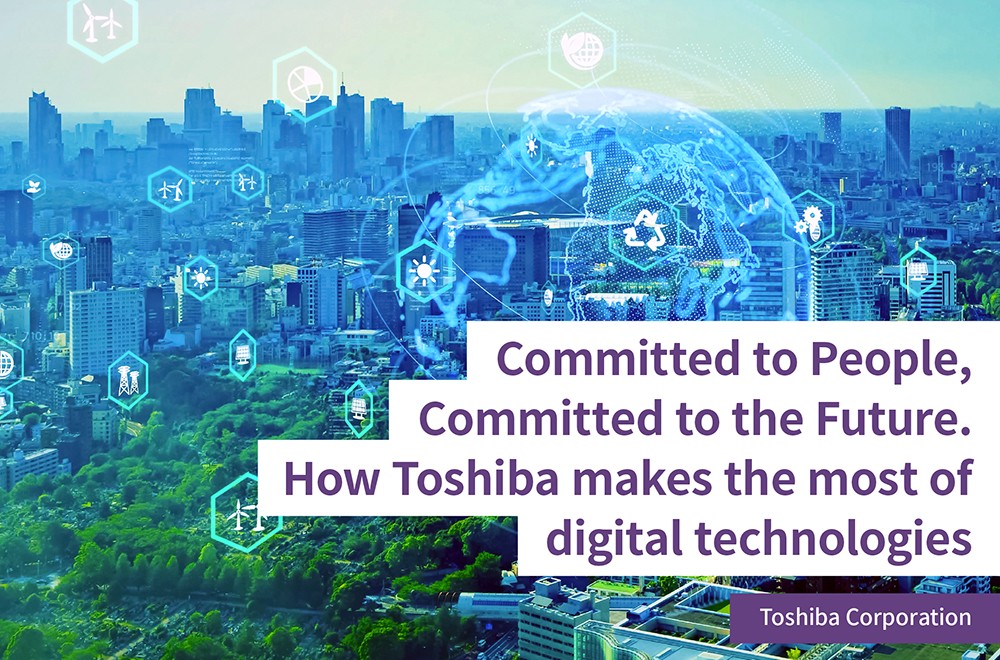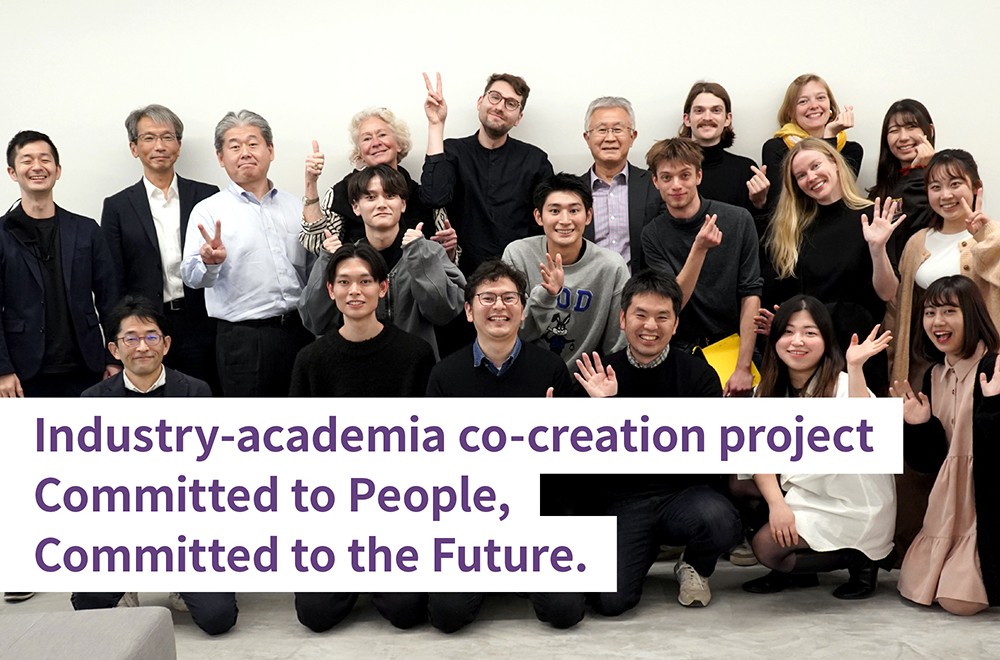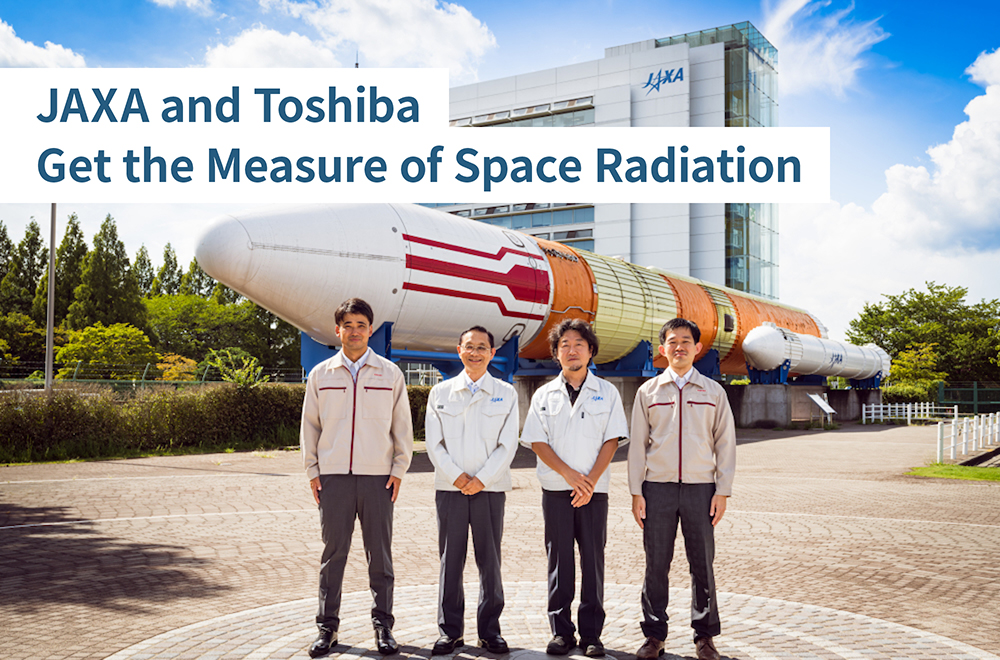Business and Human Rights – The Challenge for Toshiba “Committed to People, Committed to the Future.”
2023/09/04 Toshiba Clip Team
- As concern for human rights trends globally, Toshiba is tackling it company-wide
- Quickly filling a gap in sustainability promotion through collaboration
- Consider respect for human rights with all stakeholders, including local communities
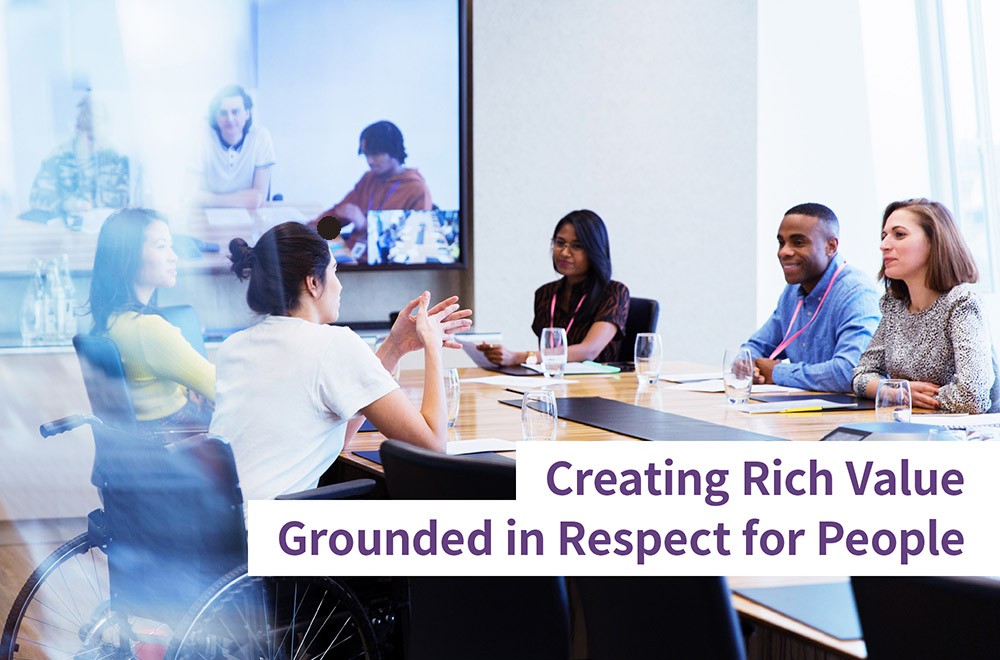
ESG management, with its emphasis on environmental, social and governance issues, is today an integral part of business. Activities that address measures against climate change and to protect against further loss of biodiversity are particularly well established. However, a turning point in the social dimension and human rights came in 2011. In that year, the United Nations adopted the Guiding Principles on Business and Human Rights.
The Guiding Principles clearly state that companies have a “responsibility to respect human rights,” and that this is true no matter the country or region where they do business, or where their head offices and bases are located. Business enterprises are also advised that they should take support actions, such as “human rights due diligence,” which identifies any risk of human rights violations and take steps for prevention or mitigation. The Office of the United Nations High Commissioner for Human Rights has also stated that “…there is no equivalent of a carbon off-set for harm caused to human rights: a failure to respect human rights in one area cannot be cancelled out by a benefit provided in another.”
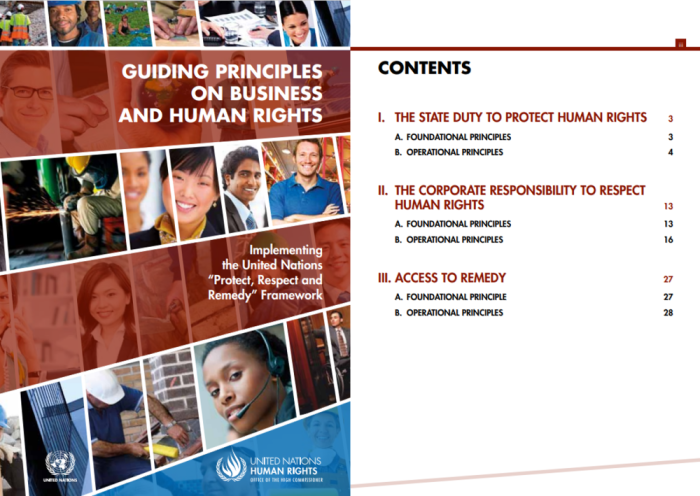
The UN Guiding Principles on Business and Human Rights have become an important standard for human rights responses.
In Japan, the government spent time searching for the ideal form of business and human rights, and in 2020 announced the “National Action Plan on Business and Human Rights.” It followed up in 2022 by formulating “Guidelines for Respecting Human Rights in Responsible Supply Chains.” As a company with a global presence, Toshiba is making every effort to put the guidelines into practice, and to observe the UN’s Guiding Principles. Toshiba places great importance on human rights as a basic premise for corporate management, and advocates “Committed to People, Committed to the Future.” as the core of its management philosophy. “People” here refers not only to its employees, but also to suppliers, business partners, customers, local communities, and all other stakeholders, and Toshiba creates value grounded in this respect for people. To better understand the company’s activities and vision, we spoke to Junko Arima of the Sustainability Management Division, and one thing she told us was, “We have a heap of work to do.”
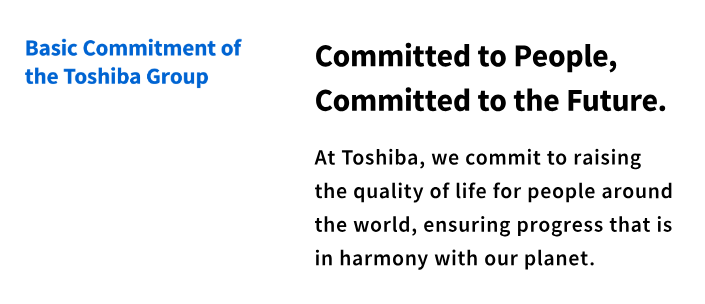
Toshiba’s Basic Commitment
Why responding to human rights has become an urgent concern for business
Asked why respect for human rights has become a theme taken up by global business, Arima has a ready response that takes in the message of the UN Guiding Principles, and the related Sustainable Development Goals: “Respect for human rights is the foundation of all business activities,” she says.
The now widely known Sustainable Development Goals, the SDGs, are a blueprint of 17 targets for long-term peace and prosperity that the UN formulated in 2015. “The central promise of the SDGs is “leave no one behind,” says Arima. “That is the very essence of human rights, and all of the goals are linked to those rights. Respect for human rights is a prerequisite for building a sustainable society, so it’s completely natural that companies, as members of society, are also expected to respect human rights. And this why is the essence of ESG management is human rights.
“The social component of ESG has a significant impact on human rights, in areas like employee rights and working conditions, while environmental issues, such as air and water pollution, directly impact on people’s health and livelihoods. In addition, the G of governance refers to corporate governance, and that too is related to people, and the need to protect the rights of stakeholders. All corporate activities are face-to-face with human rights.
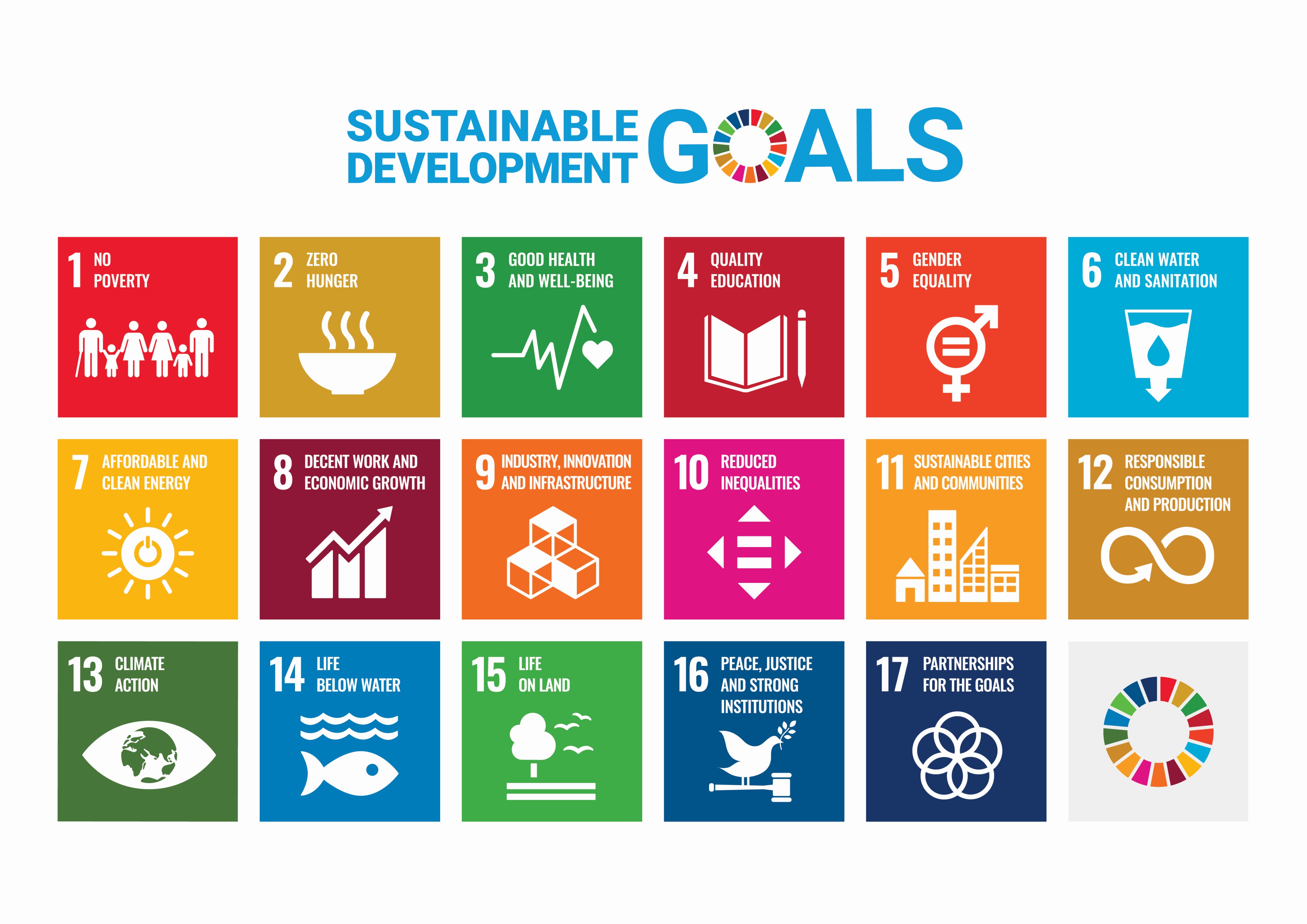
The SDGs are grounded in respect for human rights
“Human rights are the fundamental rights we are born with, and that are protected by the state—though for a long time companies may well have been less aware that they too have a responsibility to respect them. However, as economic activities have extended beyond national borders, it has become impossible to ignore the impact of corporate activities on human rights, and respect for human rights is taking center place as an urgent issue that companies must address.”
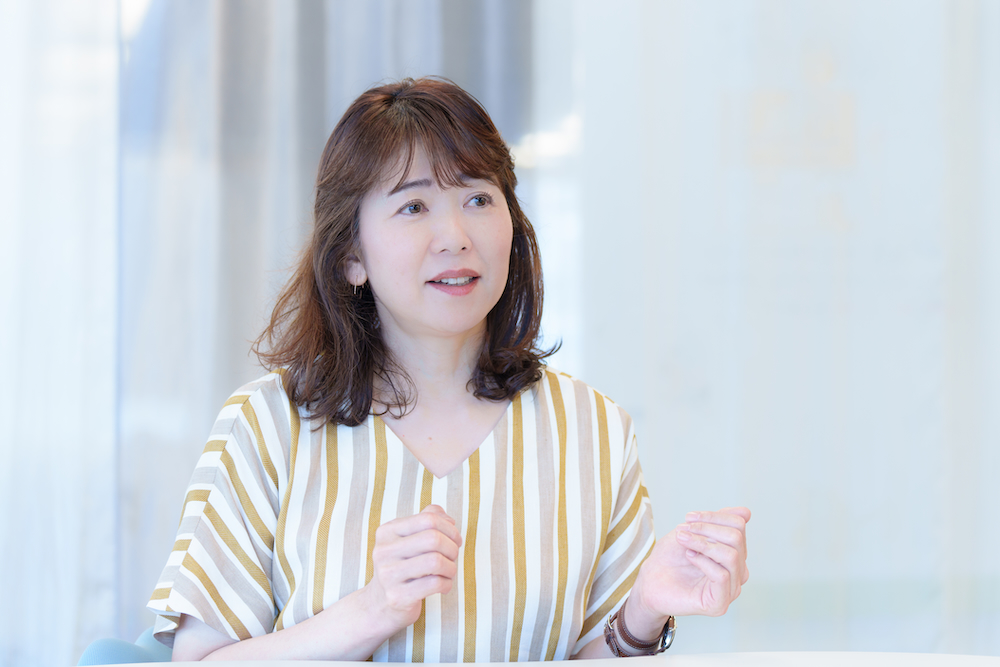
Junko Arima, Expert, Sustainability Management Division, Toshiba Corporation
As we have seen, the UN Guiding Principles recommend increasing awareness of human rights, and many companies have begun to make human rights an important item on their agenda for sustainability promotion activities. Many regions and countries are also developing a legal framework to support this.
“California was among the first,” says Arima, “with the California Transparency in Supply Chains Act, passed in 2010. The UK Modern Slavery Act was enacted in 2015, and France, Australia, Netherlands, Germany, and other countries have followed suit with similar legislation. If businesses fail to comply with these laws, they will become unable to operate.
“If a company does not itself disclose how it deals with human rights, there is every chance that the global community will reach its own conclusion: ‘They cannot disclose it because there is a problem.’ If they simply assume that ‘there is no forced or child labor in our company,’ they may in fact, even though unintentionally, force suppliers to work long hours; and it even is possible that child labor does exist in the supply chain. If the claim is that ‘there is no forced labor,’ then ‘there is no forced labor” must be disclosed, along with details of the investigation process; otherwise, saying ‘We are a company that respects human rights’ will not be accepted. Companies with global operations are required to raise awareness of respect for human rights throughout their organization, and to understand why they need to investigate their own situation and disclose the facts.”

Characteristics of laws on human rights in various countries
(Source: Introduction to Business and Human Rights for All Businesspeople)
Another factor is that ESG rating agencies and institutional investors have begun to require disclosure of human rights-related information, and to rigorously evaluate implemented measures. A low rating makes it difficult to attract investment, and in some cases can even trigger divestment, the withdrawal of financial assets.
“The proliferation of social media has heightened a sense of urgency about the risk of damage to corporate reputations,” observes Arima, but she also stresses that there is more than this: “Respect for human rights does not stop at avoiding such risks. It has many positive impacts on corporate value; it can increase employee engagement, and raise brand value.
“If a society is to be sustainable, people must first and foremost respect each other. In the Sustainability Management Division, we believe that if company wants to conduct business globally, with integrity and in a sound way, it needs to take a stance of respect for human rights. This has inspired us to accelerate our efforts.”
Collaboration and co-creation fill the two-year gap caused by inappropriate accounting
Arima’s work in the division centers on in-house education and the formulation of human rights policies, and also covers collaboration with other divisions, including human resources, general affairs, legal, and procurement, on how best to respond to issues. One aspect of this is promotion of human rights due diligence, which involves identifying human rights risks in business activities and taking measures to prevent or mitigate them; it is an approach recommended by the Guiding Principles on Business and Human Rights and required by rules and laws on human rights around the world.
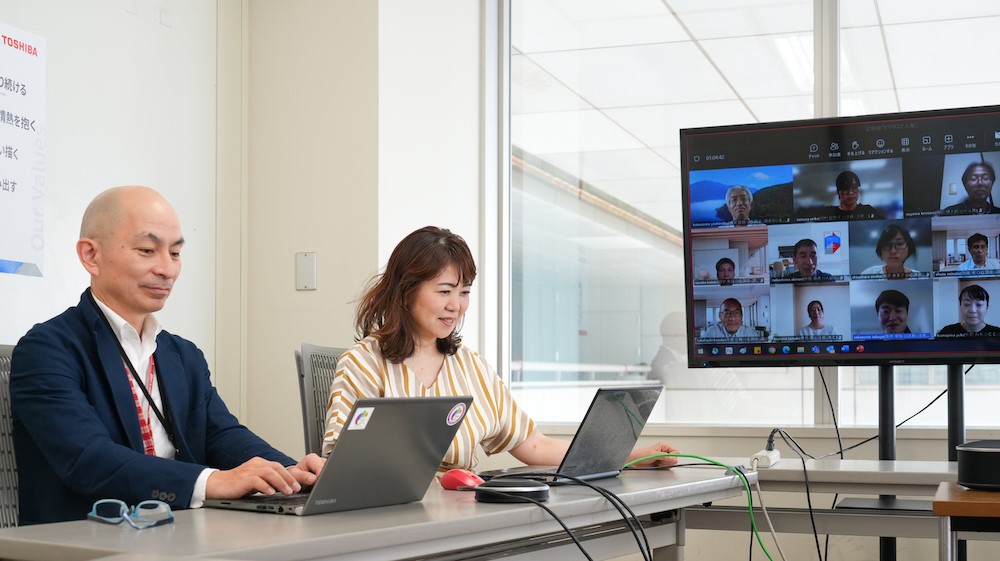
Progress in cooperation with related departments ensures respect for human rights
As part of human rights due diligence, Arima, along with her colleagues, is working with Business for Social Responsibility (BSR), a US-based non-profit organization, to create a “human rights risk map” that identifies locations where human-rights related risk is likely to occur in Toshiba’s business. This will provide a basis for planning corrective and preventive measures. In addition, the corporate Procurement Division conducts annual human-rights risk surveys that target tier-one suppliers.
“We have many tier-one suppliers to survey,” notes Arima, “and the Procurement Division and Legal Division review the questions and survey methods every time, so we proceed by trial and error. We want to use the evaluation results to confirm the actual situation, determine priorities, and deal with the human rights issues that need to be addressed.
“On top of this, Toshiba is a global company, and when it comes to disseminating information on human rights issues, we are asked how we see and think about them, and how we tackle them. Toward ensuring that we conduct business in accordance with global standards, we want to promote our activities with the close involvement of our overseas subsidiaries.”
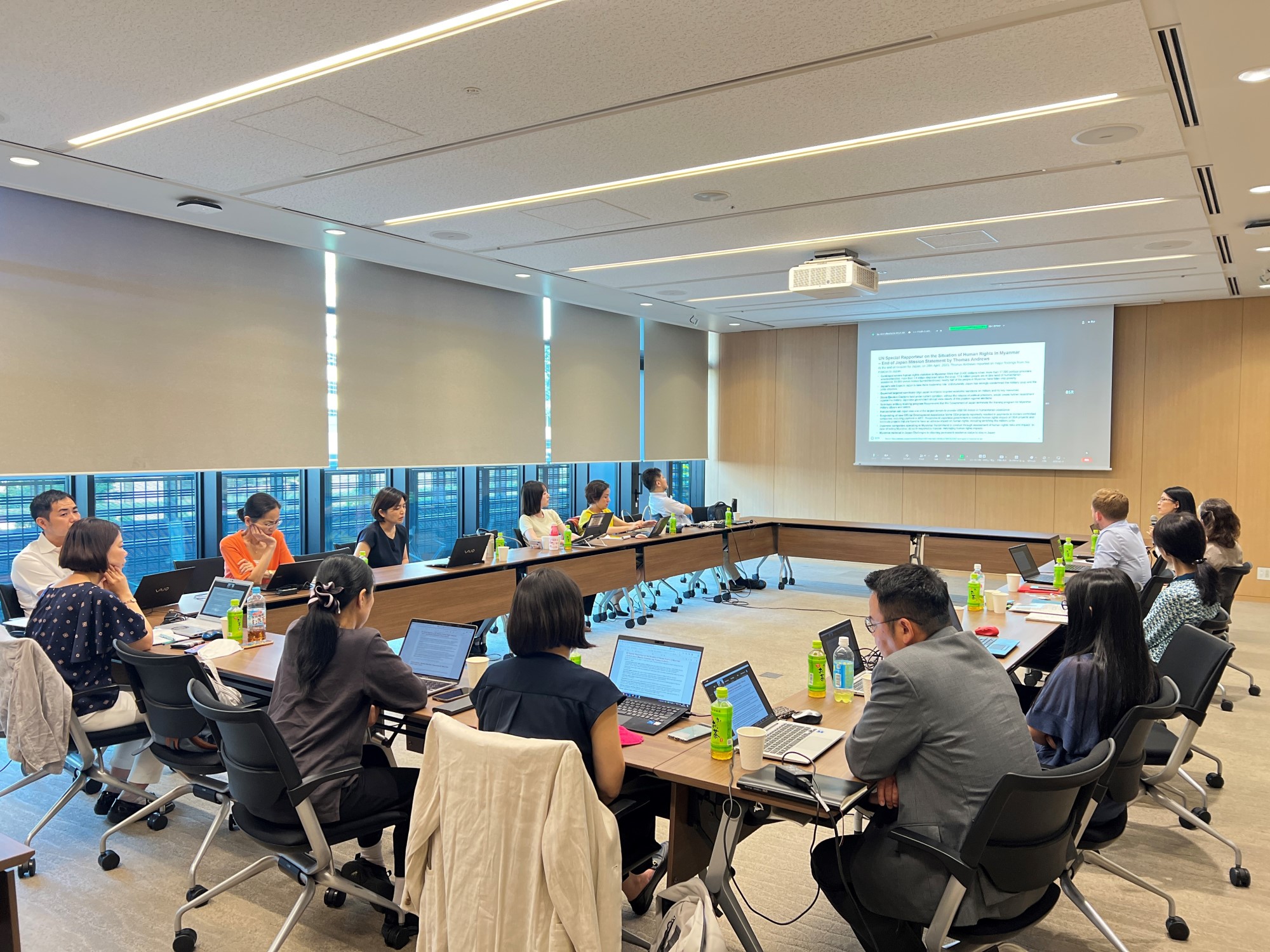
Deepening understanding through discussions with people from other companies participating in the BSR Human Rights Working Group.
But it is not all plain sailing. The discovery of irregular accounting in 2015 forced Arima and her colleagues to put their activities on hold. The focus of the entire company shifted to appropriate disclosure, especially for accounting issues, and in ESG the emphasis shifted to governance. It was suddenly difficult to devote much effort to human rights issues and other social activities.
Arima recalls it well. “We fell two to three years behind other companies in initiatives to promote respect for human rights. However, as we turned that around, I felt the power of collaboration and co-creation in sustainability activities. By communicating with other companies involved in similar activities, we were able to confirm global trends and Toshiba’s current position. Every company must play to its strengths and work for the good of society and the Earth, with collaboration. I think this awareness is becoming more widely accepted every day.
Ideas about human rights have changed with the times and taken on new faces. Technology and networks also create new human rights risk, like the slander and personal information leaks that we see on the Internet. Arima and her colleagues are also working with teams carrying out R&D in AI image recognition, and keeping a close eye out for issues relevant to the times.
Move forward together, Committed to People, Committed to Tomorrow.
The Sustainability Management Division conceives of a roadmap that fuses respect for human rights and the environment. Looking into the future, Arima explains: “In connection with the environment, we are confronted by numerous issues, such as climate change and biodiversity. What we want to do is to connect those issues to human rights issues and work on them together.” The close links between environmental issues and human rights are easy to see: disasters triggered by climate change threaten livelihoods, and loss of biodiversity depletes resources like food and water.
In addition, respect for human rights must be considered not only by Toshiba and its suppliers, but also in the value chain, including society and local communities. Arima is convinced of this. “Toshiba has many group companies, offices and factories, in Japan and overseas. If there are human rights issues in those communities, we would like to consider working together to resolve them. That kind of response will contribute both to the company’s sustainability and, at the same time, help to bring stability to the local community. That is “Committed to People, Committed to the Future.” put into practice, and I believe we should contribute to the realization of a sustainable society where people can live safely and securely.”
In October 2022, Toshiba joined the JaCER Engagement and Remedy Platform, a new initiative for receiving complaints and grievance reports on issues related to business and human rights. This move opened up a contact point, accessible to all, for raising any issues in Toshiba’s value chain that might infringe on human rights, and for communicating with stakeholders to find solutions. Participation in this process will allow new knowledge to be quickly absorbed and applied in measures to advance respect for human rights. Continuous efforts like this hold out the promise of a better society.
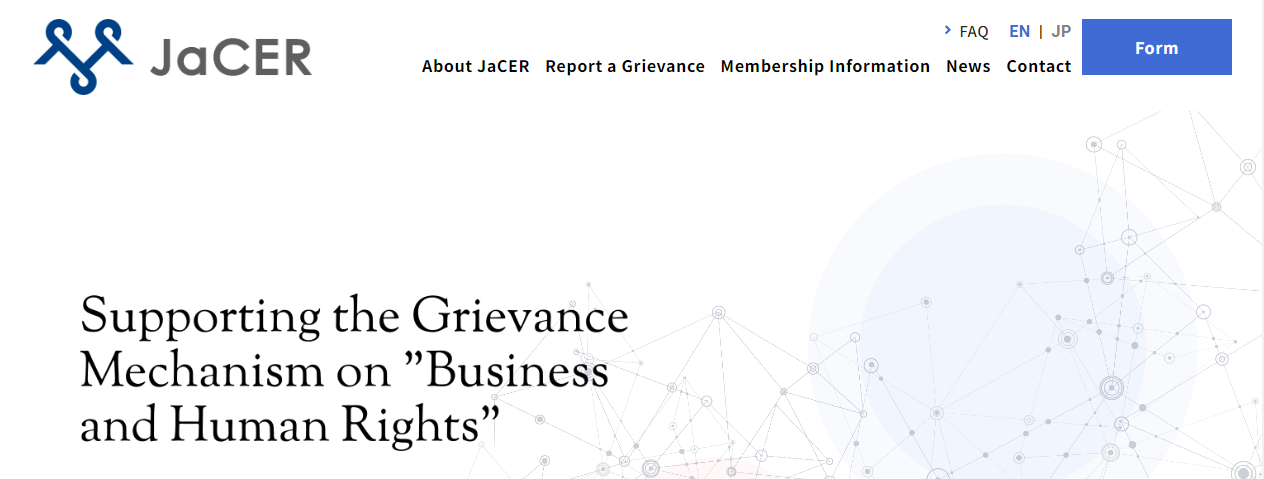
Toshiba participates in the JaCER Engagement and Remedy Platform
The Sustainability Management Division promotes activities that give it a bird’s eye view of global trends, and engages in dialogues with stakeholders. The question is, what human rights initiatives are necessary for Toshiba’s business to help ensure a sustainable society? There are no precedents that provide an answer, and there may be some zigzags involved in moving forward. However, it is not a step into the dark. There is always a starting point to return to, a philosophy to look up to.
“For almost 150 years, Toshiba has provided society with value through a wide range of businesses,” says Arima. “We will continue to seek value that leads to a sustainable Earth. At times, we might encounter situations where prioritizing human rights conflicts with environmental protection.
When we find ourselves caught in such a difficult contradiction, we have a philosophy we can fall back on, “Committed to People, Committed to the Future.” Even if we are lost or confused, it is the starting point we can return to. As long as we continue to interrogate the meaning of this philosophy, I believe we will be able to move in the right direction, toward a better society and a better tomorrow for the Earth.”
![]()
Related Links
*This section contains links to websites operated by companies and organizations other than Toshiba Corporation.
Respect for Human Rights | Sustainability | Toshiba





